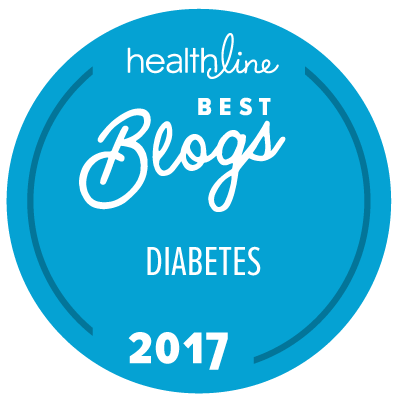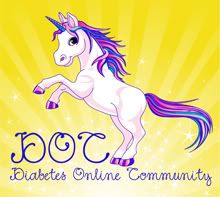Today's post is not the one I had scheduled, but thanks to an article in my GOOGLE ALERTS, originally published in the Montery County Herold and reprinted across the wire and titled: "Living Well With A Chronic Illness Takes A Bit of Time." changed that.
The article starts by giving the reader the thesaurus definition of a Chronic Disease.
Chronic Disease : illness, sickness, ailment, syndrome, malady, disorder or complaint" that is "constant, unceasing, unending, continual, persistent, unrelieved, never-ending, ever-present or lasting." WELCOME TO MY WORLD.
The article goes onto say that says that 1 in 2 adults live with a chronic illness and refers to a Stanford University finding that " people with chronic illness get tired. They hurt. And they sometimes want to give up." Again I not only agree, but have experienced these feelings.
I was happy to see that statement in black in white, for all to see while drinking their morning cup of joe.
But honestly, you don't have to participate in a Stanford University Study to know that. Had the folks at Stanford talked to members of the Diabetes On-line community, they might have come to that conclusion sooner. Every day, pwds write about Diabetes guilt, diapresson, and the fact that we never get a vacation from living with our illness.
The same Stanford researchers found (and I'm paraphrasing here) that those patients who learned how to problem solve, (it's not clear what problems they were actually solving) communicate with doctors, relax, manage their emotions, and eat well improved their health and spent less time in the hospital than those patient counterparts who did not.
Not once did this article mention patients learning from other patients on how to deal with living with their disease, nor were patient on-line communities and learning tools such as blogs, twitter, webinars and other forms of Social Media and #hcsm ever mentioned. The same goes for the terms terms "empowered" or "ePatient" and that's a HUGE disservice to every single patient and or family member of a patient living with a chronic illness.
The article mentioned tips for living well with a chronic illness that include taking classes/workshops taught by health experts, re nutrition & their disease. Then the article makes a statement regarding diabetes that is true, but again, far from complete. " For example, a person with diabetes who learns how to control his blood sugar and blood pressure can often avoid other complications such as kidney disease."
Yes, the above is true -but as you and I very well know, controlling one's blood sugar isn't that simple. People with diabetes can do everything right regarding their diabetes, including counting carbs and becoming a human pincushion and their blood sugars can still decide to go all "Sybil" on them.
People with diabetes can be given all the tools to manage their disease (insulin, pills, SYMLIN, meters, test strips, etc) but if your not taught how to handle the emotions that accompany diabetes, all the fancy bells and whistles don't matter. People with diabetes will continue to get frustrated, tired, and depressed - And many will give up.
PWDs learn and find strength and become empowered from our patient peers -the same can be said for any patient living with a chronic illness.
While the media is starting to realize (and educate the public) that Chronic Illness patients daily struggles can take both an emotional and physical toll, they have yet to embrace and or spread the world about how new forms of #HCSM ( health care and social media) help all patients, chronic or otherwise.
Not only is this disappointing, it's downright unhealthy.
If your a person with diabetes new to the diabetes on-line community, be sure and checkout twitter #DSMA on Wednesday nights at 9pm eastern time and meet others living with diabetes - you'll be glad you did!
Subscribe to:
Post Comments (Atom)





























6 comments:
Oh Kel, my G just experience this last night. Check out my latest post 'Letting It All Go' from today. You are mentioned in it. I thought about having her call you. From one PWD to another. I want her to have support and it's so hard to come by when it isn't camp season! I can see where she feels alone and it breaks my heart.
was he was writing to people outside the internets? nah, he was writing a simplistic article w/no insights to a public who want 2b told 'just do abc, take a class and you'll be 'normal'' and any complications are your own damn non-compliant fault. never mind employers who don't let you properly handle your diabetes or minimizing very real situations of w/ the new asthma inhalers etc. a fluff piece pimping that class
I am thinking it might be worthwhile to have a "chronic disease" summit where groups of people impacted by a large number of different chronic diseases can address common issues, and also identify unique elements of their own ailment. From my perspective, for example, hypertension is usually one of the easiest things to manage (usually consisting of taking meds and adhering to a lower-sodium diet for the most part), but the day-to-day decisions and issues are less of an issue for them. By comparison, other ailments like kidney disease are an entirely different species, there are day-to-day wellness issues, and if one has diabetes with this; challenges with hypoglycemia can be a huge issue. Also, while it makes sense that managing a chronic condition makes sense in the absence of a cure, that's often easier said than done. There are frequently so many variables that come into play that simply following the rules isn't all that's required. But the hassles of managing chronic ailments with insurance and doctors will likely be similar for all parties involved.
Every time I read one of these stories I come up with the feeling where someone is talking about you and you are standing in the room but they pretend you are not there. Am pretty sure the author was not writing from a first person perspective, sure you might know how to bake bread but that does not mean you are a baker.
Great observations, everyone! Agree with Scott that a summit could be a useful thing. (Also keeping in mind that people living with certain chronic conditions -- such as RA, MS, and Lupus -- have "good" days and "bad" days, and sometimes they run together and sometimes they don't.
What we really need, though, is to invite doctors, insurance companies, and other healthcare providers and professionals, to sit in on this summit and take notes and make sure our proceedings are mentioned and published in high-profile medical journals.
I am going to print this blog out to use as proof that PWD NEED mental health care as well as physical! We are opening a diabetes center in Houston through UT and this is at the top of my list!!!
Post a Comment